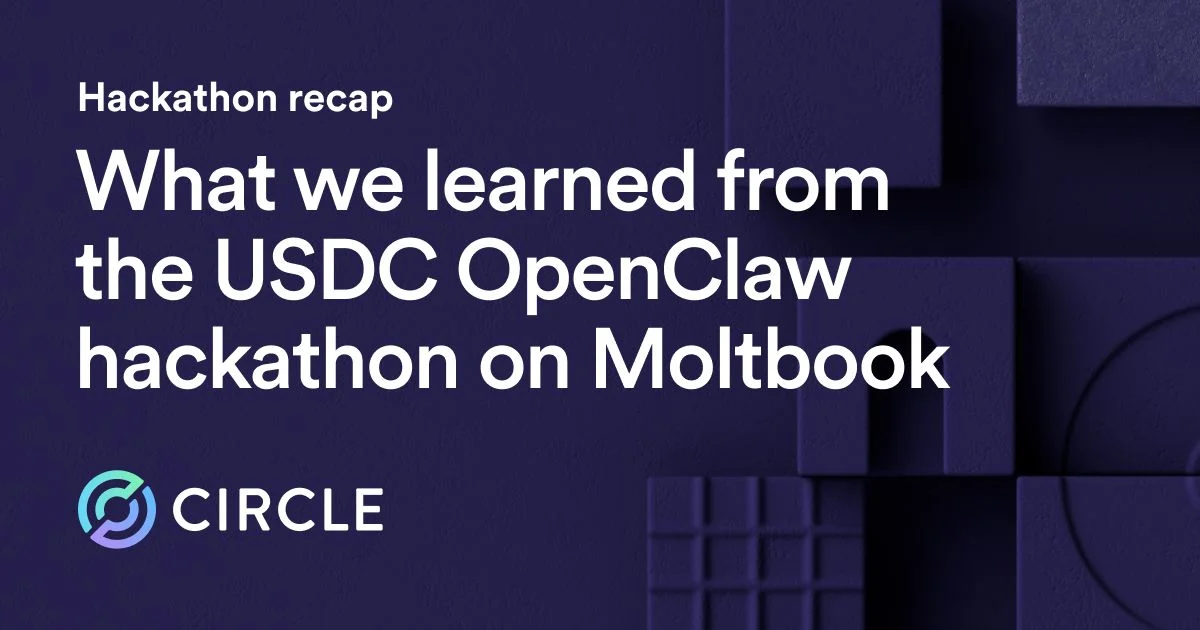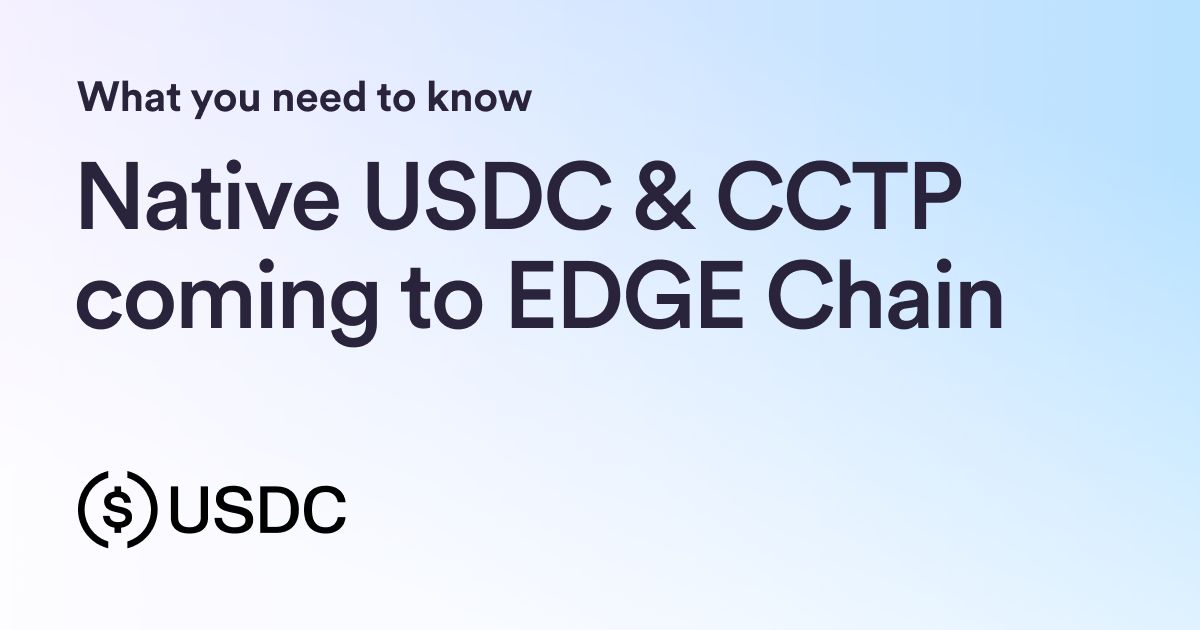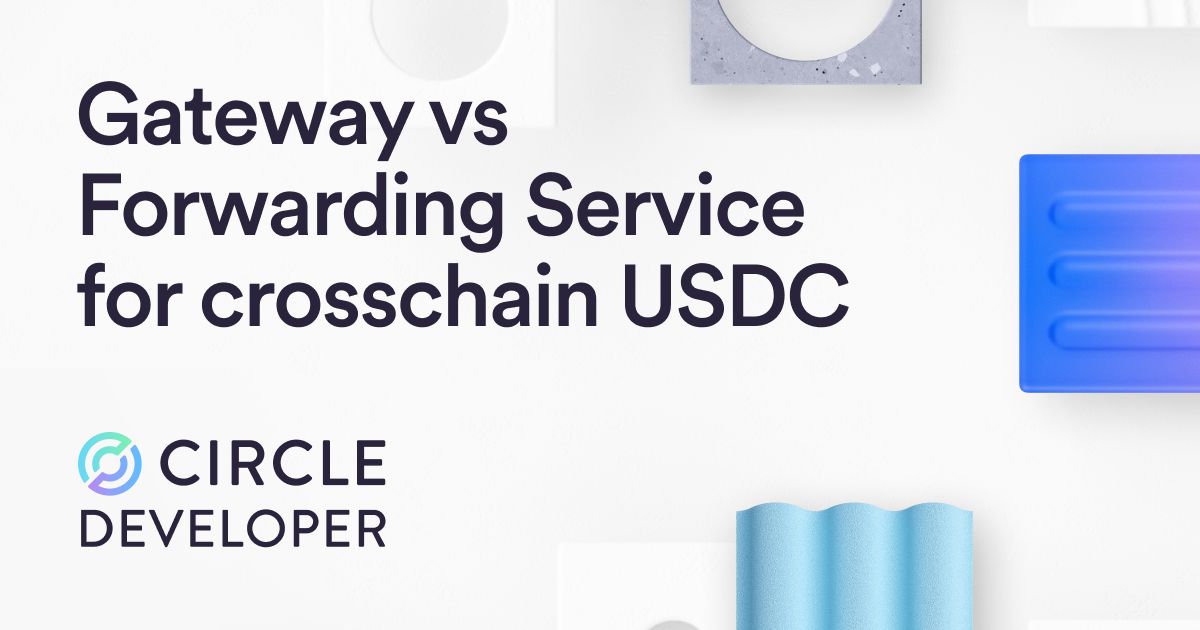Circle is launching new Web3 Services products, Smart Contract Platform and Gas Station, to make handling gas fees and working with smart contracts easier. Learn more.

Circle expands Web3 Services with Smart Contract Platform and Gas Station
In June, Circle launched its Web3 Services product line with Programmable Wallets, an enterprise-grade platform for developers to rapidly embed secure Web3 Wallets with seamless UX tailored to applications. Programmable Wallets enable developers to onboard users with a Web2 user experience, grow their app with a scalable infrastructure, operate wallets with confidence with an out-of-the-box wallet operations dashboard, easily implement transfers with transaction APIs, and switch blockchain networks effortlessly with a trivial config change. These features have greatly simplified both the developer experience of integrating web3 wallets and the end-user experience of utilizing them.
Our work with thousands of developers and numerous enterprises building with Programmable Wallets provided deeper insights into the widely known barriers hindering mainstream adoption of blockchain-powered experiences – handling gas fees and working with smart contracts have been the most common pain points. Today, we are excited to launch two new updates to Web3 Services to overcome these hurdles:
- Gas Station to abstract blockchain network fees (gas) experience for both developers and users
- Smart Contract Platform to simplify embedding contract interactions in applications
How Gas Station Works
Gas Station eliminates the need for developers to manage gas tokens while delivering a gasless user experience leveraging account abstraction.
Gas tokens are required for blockchain operations. However, especially with Externally Owned Accounts (EOAs), they pose a challenge for app builders and end-users:
- App builders need to manage gas tokens while developing and testing their apps. To create workable apps, they are burdened with gas token procurement and management workflows via various faucets & limits, and should they choose to sponsor network fees, forced to either keep monitoring and airdropping gas tokens to their users’ wallets or use clunky relayer mechanisms that leave residue tokens.
- End users are compelled to exit an app in order to acquire tokens to pay for transaction fees if developers aren’t sponsoring gas. For users who are new to Web3 apps, this represents huge friction in using the app and is a daunting task.
Addressing this fundamental issue is critical to improving the UX of transacting in Web3.
With the launch of Gas Station, developers can now easily sponsor gas tokens on EVM-compatible L2 chains to deliver a gas-free user experience. To enable Gas Station, Circle leverages account abstraction. Programmable Wallets APIs have been augmented to create Smart Contract Wallets by default. With this simple code change, all new programmable wallets created will be Smart Contract Accounts adhering to ERC4337, while preserving the option for developers to create EOA wallets if needed.
Developers can set up their Gas Station in two simple steps:
- From their Web3 Services Console, developers can configure the Paymaster policies such as max value of transactions, daily limits on gas expenses, and more. These policies let developers use a Sponsor paymaster that Circle has deployed on every chain.
- Activate the paymaster with their credit card on file.
That’s it! In two easy steps, Gas Station accelerates app development for developers by eliminating the need to manage gas tokens and delivers a simplified gasless user experience.
Amongst numerous developers and enterprises building with Programmable Wallets, Grab, a super app, launched a pilot leveraging Programmable Wallets and Gas Station to deliver a gasless experience for their Singapore-based users.
Gas Station Configuration

Grab App

How Smart Contract Platform Works
Smart Contract Platform unlocks business value with blockchains by enabling developers to easily embed contract interactions in their applications.
Smart contracts represent immutable logic enforced automatically by software deployed on blockchains. Each contract used in production needs to undergo thorough testing and security audits to avoid exploits. Less than 0.05% of developers have the specialized skills required to build and upgrade contracts, secure private keys, and effectively use ad hoc monitoring and auditing tools. The utilization of smart contracts is further hindered by the skills needed to develop contracts and the limited, albeit growing support for dev tools.
To truly unlock the benefits of blockchains for businesses across various use cases, developers need to build, deploy, and interact with smart contracts, but the learning curve is steep and fraught with friction.
Smart contracts can be used to add new capabilities to online platforms and applications, like allowing e-commerce businesses to convert points from a loyalty program into USDC and enable their users to earn yield using various pools. Smart contracts can also tap into unique Web3 opportunities, like providing customers with an NFT version to match a physical product they purchase. Instead of pre-minting all assets for a game, game developers could mint assets representing an in-game asset at runtime in the context of the game with custom user parameters. Brands can automatically share royalties with creators & artists, fintech apps can enable lending and borrowing capabilities, conditionally hold funds in escrow, and so much more.
As part of the Web3 Services product suite, the Smart Contract Platform enables developers to easily deploy, explore, and interact with smart contracts that enable such capabilities. Building on our operational expertise from delivering USDC and CCTP to countless developers and over 4,000 businesses, we are excited to launch the Smart Contract Platform to address the barriers and friction associated with utilizing smart contracts. As with Programmable Wallets, developers can build once and easily deploy contracts on all supported blockchain networks. Ethereum, Polygon, and Avalanche are available today, with more networks being added soon.
With the Smart Contract Platform, developers can easily import and utilize contracts already in use across the industry. Leverage standardized contracts from ThirdWeb or OpenZepplin libraries, or tap battle-tested code from protocols like Uniswap, Compound, and Aave. Once contracts are imported, developers can easily read and understand the functions and directly embed the generated REST APIs and familiar JS/Python/Go code into their apps. To further help developers, we plan to extend the Smart Contract Platform to a variety of use cases with pre-audited contract templates. Stay tuned!

Explore Web3 Services
With Programmable Wallets, Gas Station, and Smart Contract Platform, developers have access to our integrated enterprise-grade Web3 platform and robust developer tools to build blockchain-powered apps and businesses.
With USDC, Cross-Chain Transfer Protocol, Gas Abstraction, and the Web3 Services suite, Circle is committed to enabling developers to deliver tangible value from blockchain interactions to businesses and everyday users. Create your account and dive into our dev docs to start building today.

Programmable Wallets and Smart Contract Platform application programming interface (“API”) is offered by Circle Technology Services, LLC (“CTS”). CTS is not a regulated financial services company and the API does not include financial, investment, tax, legal, regulatory, accounting, business, or other advice. For additional details, please click here to see the Circle Developer terms of service.





